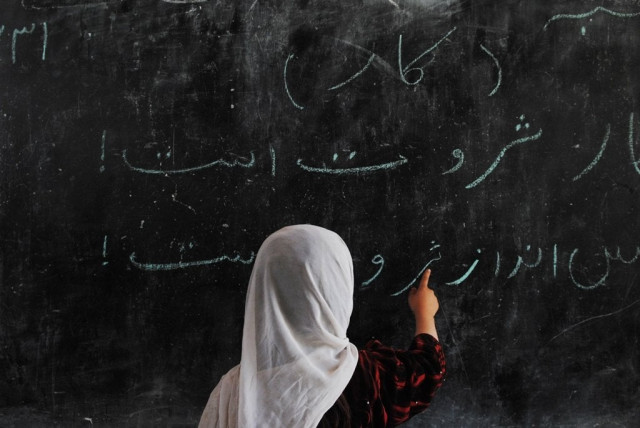Education targets
Pakistan is badly in need of national conformity when it comes to education standards, curricula and best practices.

Pakistan, as a whole, is in the midst of an education emergency that is being tackled piecemeal rather than in a coordinated manner. PHOTO: AFP/FILE

Disputed numbers aside, it is evident that there are more children attending school but a large question mark hovers over just what it is that they get by way of an education, having been persuaded to attend. Much effort needs to be put into educating teachers to educate their students. Many teachers themselves have no training at all and some are barely literate themselves. There has never been a national or provincial benchmark that defines minimum standards for a teacher, and we would like to see maximum investment in teacher training with a goal of all teachers of the five to nine cohort having, at least, a basic training by the end of 2015.
Looking at the picture for education in other provinces, there is a marked lack of synchronicity, and whilst under other circumstances, diversity is to be applauded, Pakistan is badly in need of national conformity when it comes to education standards, curricula and best practices. Devolution of education to the provinces under the Eighteenth Amendment to the Constitution has been a very mixed blessing, and now with the PMLN-N government apparently determined to reverse most of the recruitment to official posts in the last five years, education is going to inevitably suffer. Thousands of teachers’ posts are at risk, and not all of them would have been made to satisfy political imperatives. In Khyber-Pakhtunkhwa, there was a declaration last September that a ‘uniform’ system of education would be introduced across the province by March 2014, a declaration that has yet to bear much fruit and another example of the imperfect interface between political rhetoric and the practical realities of reforming a complex system. In Sindh, countless ghost schools are staffed by spectral teachers and in every province, education budgets are underspent in many of their budget-lines.
Whilst we warmly welcome the goal-setting in Punjab and hope that education for all can become a reality, to bring real change to an education system that is damaged by decades of neglect and chronic underfunding is a task that can only be tackled on a war footing. Pakistan, as a whole, is in the midst of an education emergency that is being tackled piecemeal rather than in a coordinated manner. Individual provincial initiatives have their merits and are obviously successful in some instances but not in others. The experiment that attempted to merge 400 primary schools in Sialkot district has comprehensively failed, for example. Our education system is in urgent need of some joined-up thinking and a purge of toxic politicking.
Published in The Express Tribune, February 24th, 2014.
Like Opinion & Editorial on Facebook, follow @ETOpEd on Twitter to receive all updates on all our daily pieces.















COMMENTS
Comments are moderated and generally will be posted if they are on-topic and not abusive.
For more information, please see our Comments FAQ